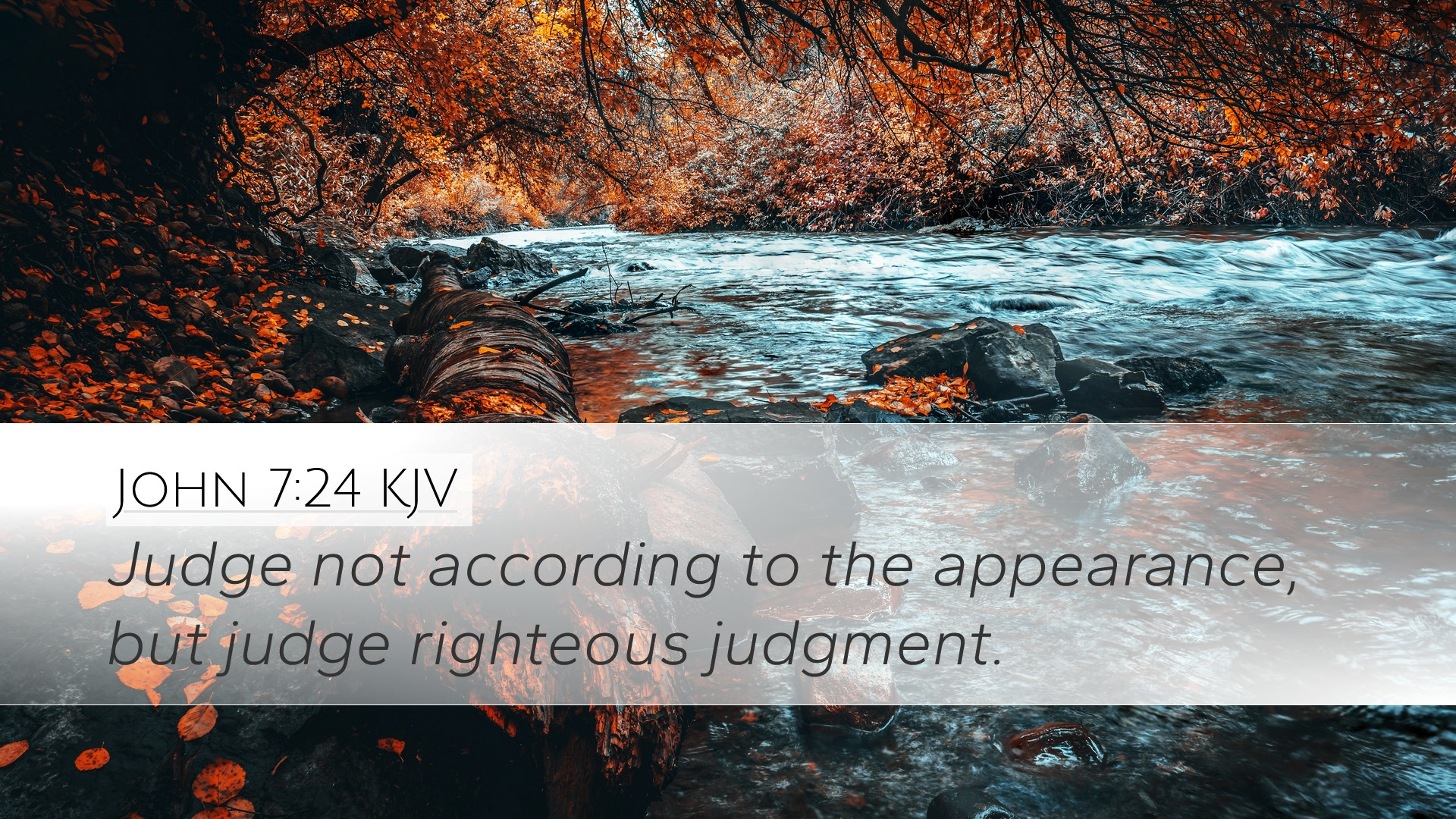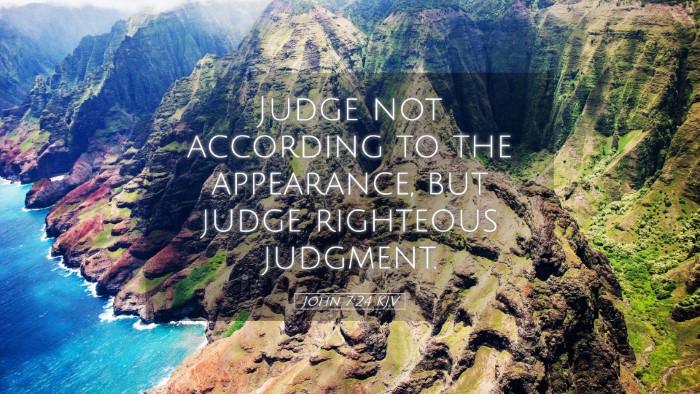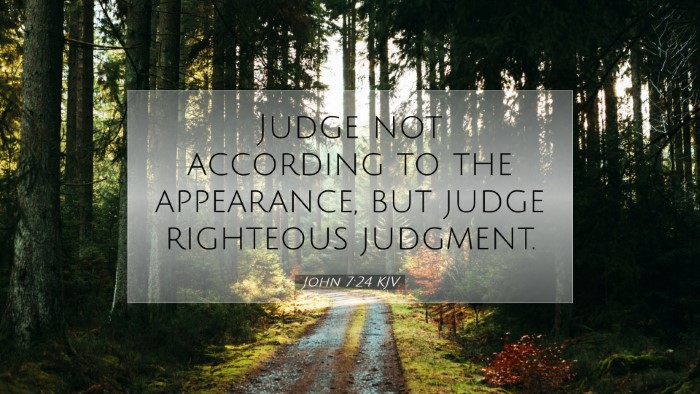Commentary on John 7:24
Verse Text: "Judge not according to the appearance, but judge righteous judgment." (John 7:24, KJV)
Introduction
The passage in John 7:24 presents profound implications for Christian ethics and philosophy, particularly concerning judgment. In a world fraught with superficial assessments and misguided conclusions, Jesus’ directive leads us to seek deeper understanding and discernment in our judgments. This commentary synthesizes insights from notable public domain sources, including Matthew Henry, Albert Barnes, and Adam Clarke, illuminating the essential themes of this verse.
Contextual Overview
In this chapter, Jesus is engaged in an intense dialogue with the Jewish authorities who are debating His authority and the validity of His teachings. The backdrop of the Feast of Tabernacles highlights the tension between appearance and spiritual truth. Jesus challenges His listeners to move beyond the surface level of observation and to engage in "righteous judgment."
Insights from Commentaries
Matthew Henry's Commentary
Matthew Henry emphasizes the importance of discerning true righteousness over mere external appearances. He notes that judgment should not be based solely on visible factors or cultural biases, which often distort the truth. Henry suggests that such superficial assessments can lead to errors in understanding God’s will and intentions.
He elaborates that righteous judgment involves a sincere pursuit of truth, grounded in the scripture and guided by the Holy Spirit. This implies that believers must cultivate an inner life of prayer and study to ensure that their judgments reflect divine wisdom rather than human prejudice.
Albert Barnes' Commentary
Albert Barnes provides a practical application of Jesus’ admonition against judging by appearances, asserting that this tendency is rampant in both religious and secular domains. He points out that many fall prey to forming opinions based on hearsay or superficial evidence rather than seeking the truth through a thoughtful and prayerful approach.
Barnes further explains that the exhortation to "judge righteous judgment" calls for an understanding of God's standards. He calls upon believers to examine not only the actions of others but their own hearts as well, as true judgment reflects an alignment with God's character and truth.
Adam Clarke's Commentary
Adam Clarke's approach brings a scholarly depth to the understanding of this verse. He highlights the specific circumstances surrounding Jesus’ teaching, noting the cultural and historical context. Clarke points to the tendency of the Pharisees to uphold traditions and appearances while neglecting the heart's condition.
Clarke underscores that true judgment involves not only moral discernment but a compassionate understanding that leads to restoration rather than condemnation. His analysis calls for a balance between truth and grace, reflecting Jesus' own ministry that consistently prioritized the heart over legalism.
Theological Implications
The implications of John 7:24 are profound for contemporary believers. The verse prompts a necessary self-examination among pastors, students, theologians, and scholars regarding the manner in which they approach judgment. It encourages an ethos that seeks after deeper truths:
- Integrity in Judgment: Emphasizing the need for integrity in how we assess situations and individuals.
- Spiritual discernment: Calling for robust engagement with the scriptures, to ensure judgments align with God's heart.
- Compassionate engagement: Highlighting the importance of love and grace in all forms of judgment, following the example set by Christ.
Practical Applications for Believers
In light of this verse, there are several practical applications that can guide believers in their everyday lives:
- Seek True Understanding: Christians are called to look beyond surface-level traits and strive to understand the heart and motivation behind actions.
- Engage in Reflective Judgment: Regular self-reflection and a willingness to seek forgiveness can prevent falling into the trap of hypocritical judgment.
- Promote a Culture of Righteousness: Within communities, fostering dialogues that prioritize understanding and love over judgment can lead to healthier relationships.
Conclusion
John 7:24 serves as a significant reminder that as followers of Christ, our judgments must emanate from a place of divine understanding and empathy. The synthesis of insights from Henry, Barnes, and Clarke provides a comprehensive view of what it means to judge rightly. This approach transforms our interactions and reflects the heart of Christ to a lost and searching world.


